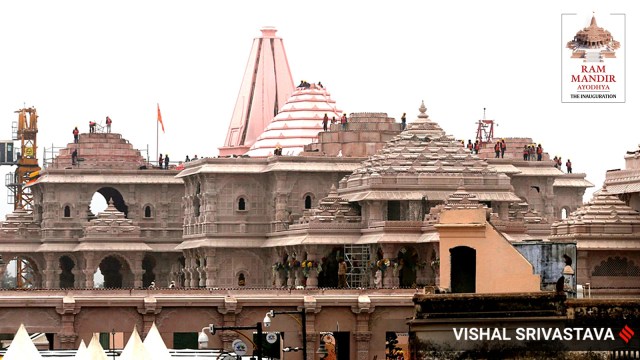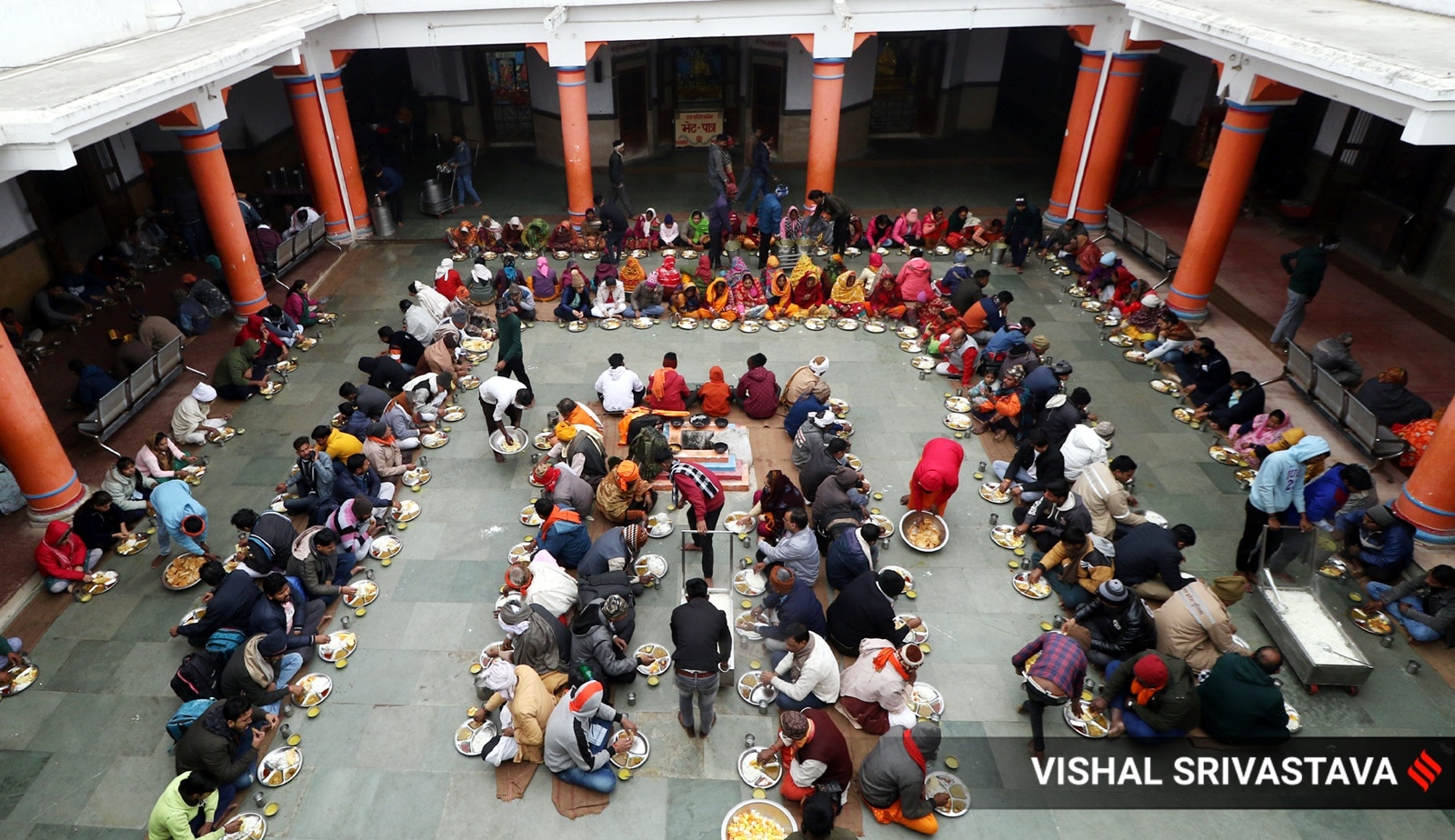On a short break, Ayodhya Ram temple workers eager to take tales of accomplishments back home
Work on construction at the temple will resume after the January 22 consecration ceremony
 The temple being decorated ahead of the January 22 consecration ceremony. (Express Photo: Vishal Srivastav)
The temple being decorated ahead of the January 22 consecration ceremony. (Express Photo: Vishal Srivastav)Before nearly 8,000 VIP guests descend on Ayodhya for the January 22 consecration ceremony, 2,000 workers who have been toiling in two shifts of 12 hours each for months to get the temple ready for the “grand opening” were given a “short break” on Friday evening.
Construction at the temple was temporarily halted on Friday evening and will resume after the ceremony.
An official responsible for the construction told The Indian Express, “Around 2,000 workers are engaged here at present. The work has been halted till January 22. Slab laying work is nearly complete for the first floor. Though we requested the workers to stay put, many are keen on making a quick trip home. We have asked them to resume work soon.”
As they make plans for their short break, the excitement among the workers is hard to miss. While some are bubbling with personal tales of their construction experience, the others are desperate to show their entire village their “most exclusive trophies” — photographs from inside the temple, the garbh grah (sanctum sanctorum), etc.
One such worker is Prem Chand Sharma, 45, a resident of Madhya Pradesh’s Morena district who has been camping in Ayodhya for the past 19 months.
Lamenting that he does not own a smartphone, he says, “Humko 27 ko bulaya hai, par 1 tarik ko socha hai wapsi ka. Kaam to kiya hai aur mandir mein bhi, par itna bara kaam nahi kiya. Iss kaam nein humein itihas ka ek hissa bana diya hai (We have been asked to return on January 27, but I plan to return on February 1. I have worked on other temples too, but nothing this big. Thanks to this assignment, I am now a part of history).”
 A bhandara (communal fest) at a temple in Ayodhya on Friday. (Express Photo: Vishal Srivastav)
A bhandara (communal fest) at a temple in Ayodhya on Friday. (Express Photo: Vishal Srivastav)
He says all workers maintain the same routine. Those in the morning shift, which starts at 9 am, get up around 5 am. They either make their own breakfast at the temporary quarters, where they sleep on bunk beds, or simply head to Prince Pooriwale, the solitary food thela (cart) run by a family of five near the premises. The morning shift, which breaks for lunch between 1 pm and 2 pm, returns to their quarters between 9 pm and 12, depending on the workload, he adds.
Sharma says, “Carvers mostly work during the day. Carving on stone is similar to the work of a murtikar (sculptor). We have carved idols of gods, goddesses and the dancing apsaras (fairies) of Lord Indra on the pillars and walls of the temple. Depending on the complexity of the design, it takes between one to two days to carve about one square foot of sandstone.”
During lunch break, workers in protective headgear and shoes covered in sand, dust and grit either march towards their quarters or make a beeline for Prince’s thela. Such is the struggle to dole out puri-sabzi to the hundreds of hungry workers, that the family does not hesitate to share details of a “tasty” bhandara (communal fest) started recently at the Ram Janmabhoomi Teerth Kshetra Trust building.
Luv Kush, a young fellow in his 30s who belongs to Dholpur, Rajasthan, says he has been working at the temple for the past eight months. “I am among the few who received an invite to attend the January 22 ceremony along with my family. My brother is getting our parents from Rajasthan for the ceremony,” he says.
Sitting on the makeshift bench covered with gunnysacks near the thela, Kush says his team and he are “experts” when it comes to working on Makrana marble (a type of white marble).
Whipping out his phone to show photos of him working on Ram Lalla’s throne inside the garbh grah, he says, “Makrana marble has been used on nearly 50,000 square feet in the temple. It’s mostly people from Dholpur who are working with marble.”
He adds that the photos give his family a sense of pride when they tell everyone that their son is working at the Ram Temple.
As the workers wait for lunch on the makeshift bench, they swap stories and past work experiences ranging from working in the house of comedian Johnny Lever in Mumbai to the Akshardham temple and ISKCON in Ahmedabad. For now, despite their empty stomachs, they say they find solace in the thread that now binds them together forever — that “they have all worked together to make the Ram Temple”.








